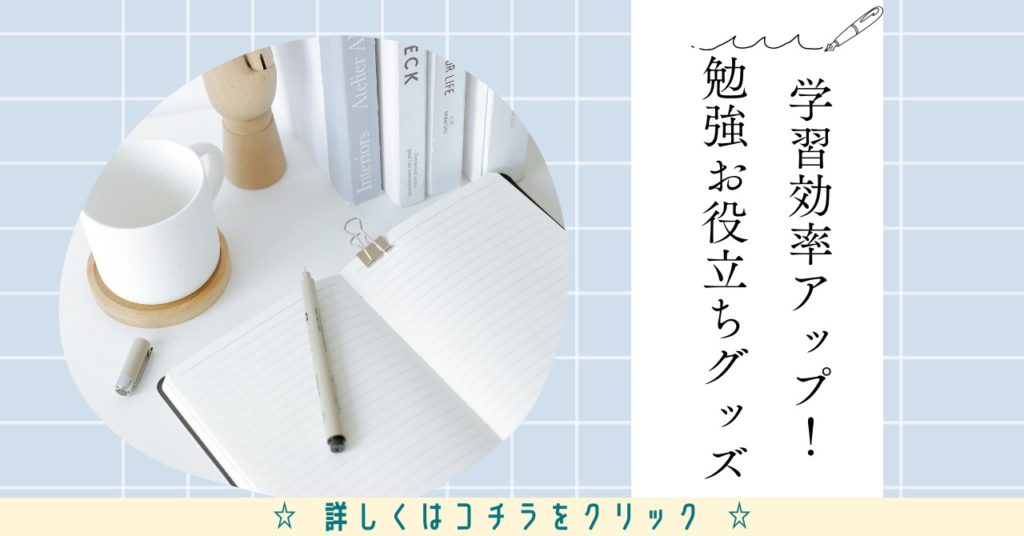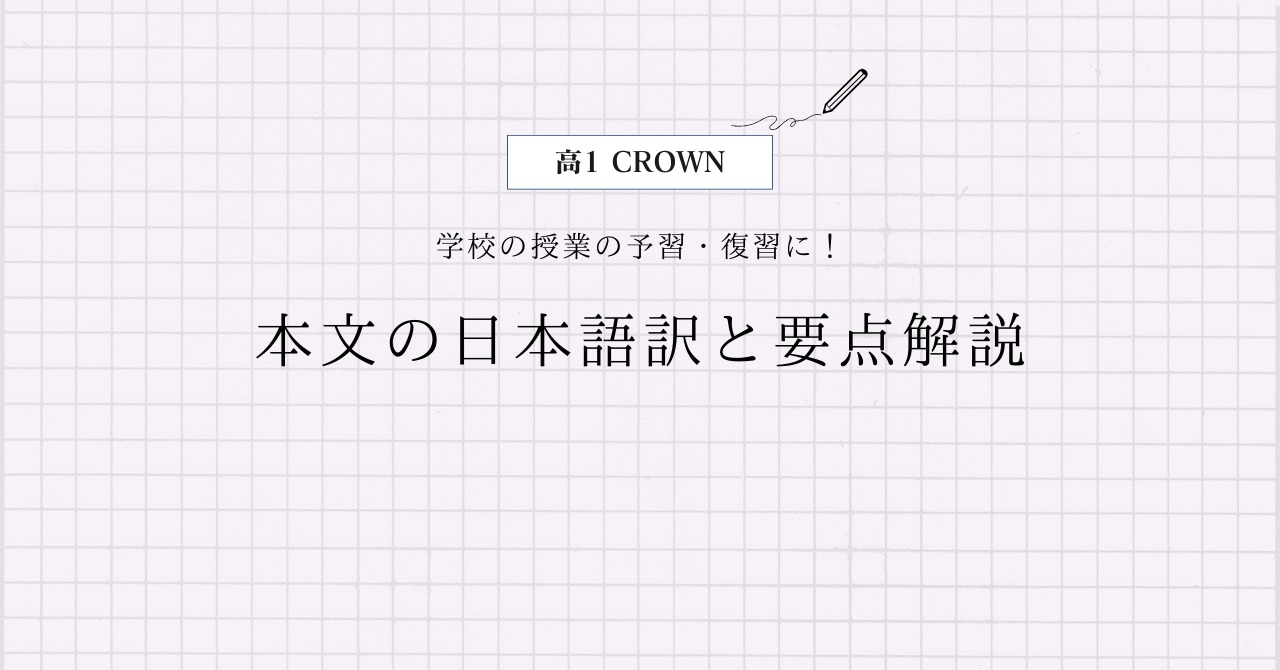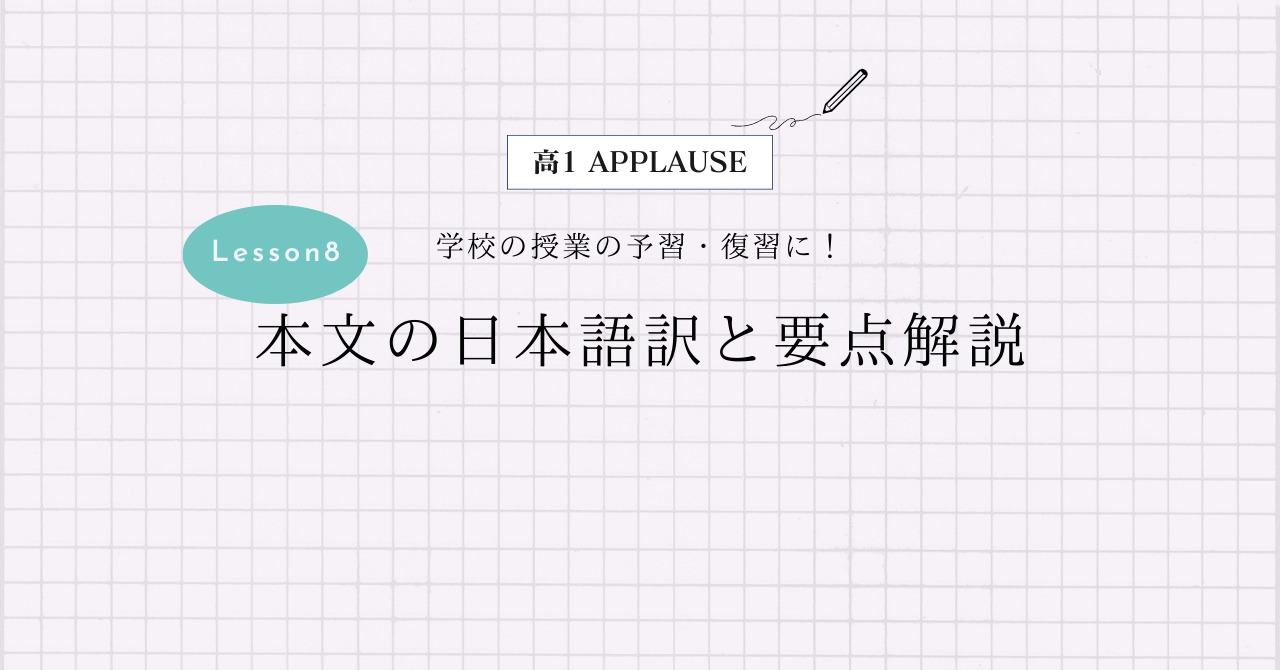三省堂 高1CROWN English Communication1 Lesson2 Section4の本文の日本語訳と重要箇所の解説です。
Section2-1, 2-2, 2-3の解説はこちらからご覧ください。
>高1CROWN English Communication1 Lesson2 Section1 本文和訳
>高1CROWN English Communication1 Lesson2 Section2 本文和訳
>高1CROWN English Communication1 Lesson2 Section3 本文和訳
- CROWN English Communication1 Lesson2 Section4 本文と日本語訳
- CROWN English Communication1 Lesson2 Section4 重要事項の解説
- Our belongings are the result of our choices.
- No wonder getting rid of things is so difficult.
- KonMari tells us to ask ourselves:
- “Am I having trouble throwing this away because of an attachment to the past or because of fear of the future?”
- Asking that question will help us discover our life values.
- Tidying up is not just a way to make our space more livable.
- It’s also a way to set our values and decide our future.
- When we organize our rooms, we learn to set priorities.
- Thus, putting our space in order profoundly affects our lives, even work and family.
- Tidying up can transform our lives.
- If you are uncertain about your future, start sorting things out.
- What are you truly interested in?
- Why not give it a try?
- CROWN English Communication1 Lesson2 Section4 まとめ
CROWN English Communication1 Lesson2 Section4 本文と日本語訳
Our belongings are the result of our choices.
「私たちの持ち物は私たちの選択の結果です。」
No wonder getting rid of things is so difficult.
「物を処分するのがとても難しいことは当然です。」
KonMari tells us to ask ourselves:
「こんまりさんは私たちに,自分自身に尋ねてみるように言っています。」
“Am I having trouble throwing this away because of an attachment to the past or because of fear of the future?”
「『自分は過去との結びつきや未来への恐れから,その物を捨てるのに苦労しているのか?』と。」
Asking that question will help us discover our life values.
「その質問をすることは,私たちが生活の価値を発見するのを助けてくれるでしょう。」
Tidying up is not just a way to make our space more livable.
「片づけることは,空間をより住みやすくするための方法なだけではありません。」
It’s also a way to set our values and decide our future.
「それは価値を見出し,未来を決めるための方法でもあるのです。」
When we organize our rooms, we learn to set priorities.
「私たちが部屋を整頓するときに,優先順位をつけることを学びます。」
When we throw away old belongings, we learn to make decisions.
「古い持ち物を捨てるときに,決断することを学びます。」
Thus, putting our space in order profoundly affects our lives, even work and family.
「したがって,自分の空間を整理することは私たちの生活に,そして仕事や家族にさえ大きく影響します。」
Tidying up can transform our lives.
「片づけることは私たちの生活を変えます。」
If you are uncertain about your future, start sorting things out.
「もしあなたが自分の将来が不明瞭なら,物の整理を始めましょう。」
What are you truly interested in?
「あなたが本当に興味のあることは何ですか?」
What do you want to do in the future?
「将来何をしたいですか?」
Why not give it a try?
「試しにやってみるのはどうですか?」

CROWN English Communication1 Lesson2 Section4 重要事項の解説
Our belongings are the result of our choices.
“belongings”は「持ち物,所有物」という名詞です。ふつう複数形で使います。
“result”は「結果」,“choice”は「選択」という名詞になります。
“of”は前置詞で,”A of B”の形で「BのA」というように後ろから前に訳します。
No wonder getting rid of things is so difficult.
“no wonder 文”という形で「~も当然だ,~なのも無理はない」といった意味になります。
“get rid of~”は「~を取り除く,処分する」という意味です。
“thing”は「もの,こと」という名詞で,“so”は「とても」という副詞ですね。
KonMari tells us to ask ourselves:
“tell 人 to 動詞の原形”は「人に~するよう言う」という重要表現ですね。
“ourselves”は「私たち自身」という再帰代名詞で,主語と目的語が同じになるときは,目的語を再帰代名詞を使って表現します。
最後の「:」は「コロン」と言い,簡単に言うと「つまり」という具合に直前の文章を補足します。コロンを使うときは,コロンの前は必ず文にしないといけない点に注意してください。
“Am I having trouble throwing this away because of an attachment to the past or because of fear of the future?”
この文は「現在進行形」の疑問文になっていますね。
“have trouble -ing”で「~するのに苦労する」という表現です。
“throw A away”は「Aを捨てる」という意味で,Aが代名詞の場合は“throw”と”away”の間に,それ以外の場合は”throw”と”away”の間でも,”away”の後ろのどちらでもOKです。
“because of~”は「~のため,~が理由で」といった重要表現です。
“attachment”は「付着,愛情」という名詞ですが,今回は「繋がり」としました。
“past”は「過去」,“fear”は「恐れ」という名詞になります。
Asking that question will help us discover our life values.
“asking”は「動名詞」になっていますね。
“help 名詞 動詞の原形”は「名詞が~するのを手伝う,助ける」という重要表現です。
“discover”は「を発見する,見出す」という動詞で,“life”は「生活,人生」,“value”は「価値」という名詞になります。
Tidying up is not just a way to make our space more livable.
“tidy up”は「片づける」という意味で,ここでは「動名詞」になっていますね。
“just”は「ただ~だけ,ちょうど」という副詞で,“way”は「方法,道」,“space”は「空間,宇宙」という名詞になります。
“to make”は「不定詞の形容詞的用法」になっていて,直前の“a way”を修飾していますね。
“livable”は「住みやすい」という形容詞で,ここでは“more”が付いて「比較級」になっています。
It’s also a way to set our values and decide our future.
“It”は“Tidying up”を指しています。
“also”は「また,さらに」といった副詞で,付け加える役割があります。色々な文で使うので必ず覚えましょう!
“set a value”は「価値を見出す」という意味で,“decide”は「を決める」という動詞です。
“to”は“set”と“decide”の両方にかかっていて,どちらも「不定詞の形容詞的用法」で“a way”を修飾していますね。
When we organize our rooms, we learn to set priorities.
この文では「接続詞when」が使われていますね。
“organize”は「を組織する,整頓する」という動詞になります。
“set priorities”は「優先順位をつける」という意味で,ここでは「不定詞の副詞的用法」になっています。
Thus, putting our space in order profoundly affects our lives, even work and family.
“thus”は「したがって」という重要な副詞です。
“put A in order”は「Aを整理する,並べる」という意味で,ここでは「動名詞」になっていますね。
“profoundly”は「大きく,深く」という副詞で,“affect”は「に影響を与える」という動詞です。
“lives”は“life(生活,人生)“の複数形で,語尾が”f,fe”で終わる名詞を複数形にするときは”f,fe”を取って”ves”をつけます。
knife→knives(ナイフ), leaf→leaves(葉)などがあります。
“even”は「~でさえ」という強調を示す副詞になります。
Tidying up can transform our lives.
“Tidying up”は「動名詞」になっていますね。
“transform”は「を変える」という動詞です。
If you are uncertain about your future, start sorting things out.
この文では「接続詞if」が使われていますね。
“uncertain”は「不確かな,不明瞭な」という形容詞になります。
“sort A out”は「Aを整理する,分類する,解決する」といった意味で,これもAが代名詞の場合は“sort”と”out”の間に,それ以外の場合は”sort“と”out”の間でも,”out”の後ろのどちらでもOKです。
また,“sorting”は「動名詞」になっていますね。
What are you truly interested in?
“truly”は「本当に,真に」という副詞です。
“be interested in~”は「~に興味がある」という重要表現になります。
Why not give it a try?
“Why not 動詞の原形?”は“Why don’t you 動詞の原形?”の省略形で,「~するのはどうですか?」という提案の表現になります。
“give it a try”は「試しにやってみる」という意味です。
CROWN English Communication1 Lesson2 Section4 まとめ
以上がCROWN English Communication1 Lesson2 Section4の日本語訳となります。
「動名詞」や「不定詞」の使い方をしっかり確認しておきましょう!
>高1CROWN English Communication1 Lesson2 Section1 本文和訳
>高1CROWN English Communication1 Lesson2 Section2 本文和訳
>高1CROWN English Communication1 Lesson2 Section3 本文和訳
何か分からない点や他に解説してほしい点があれば,お気軽にコメントしてください!





コメント